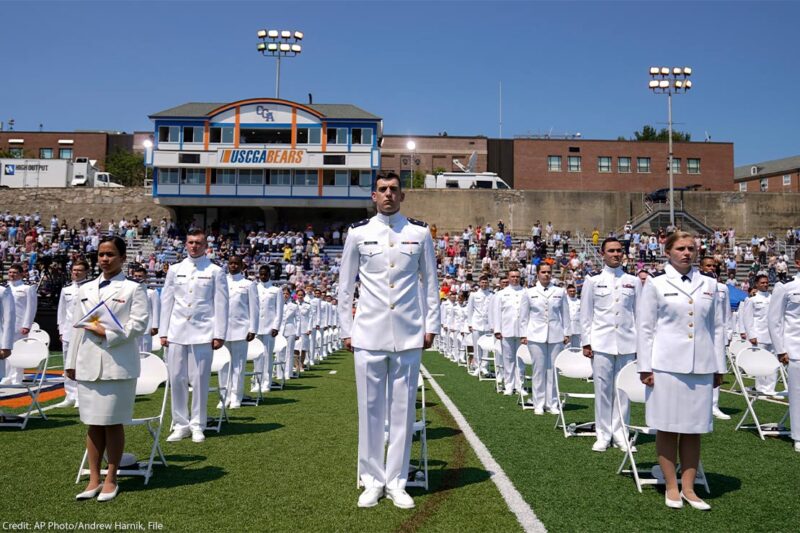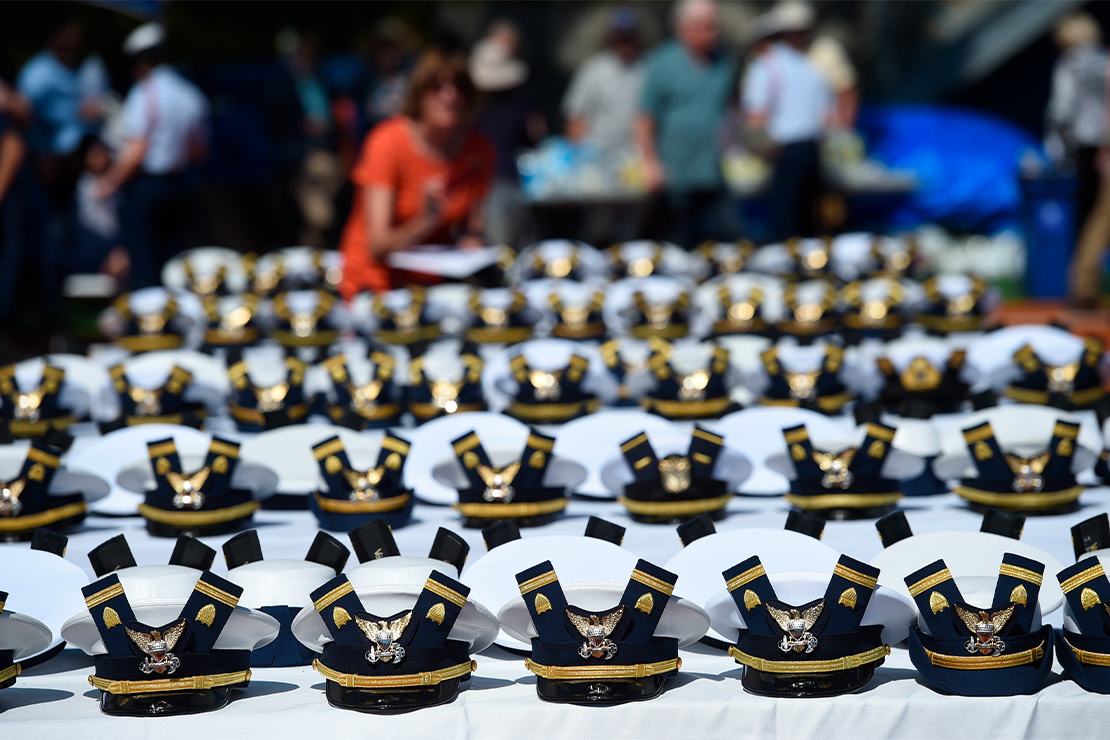U.S. Military Academies Continue to Discriminate Against Parents


Just weeks before his graduation from the United States Coast Guard Academy, learned he wouldn’t receive the bachelor’s degree he had earned. The reason? He became a father before his final year of school.
“No parents allowed” sounds like a sign on a child’s bedroom door, not official United States policy. But the academy, along with the nation’s four other federal military service academies, bans parents from enrolling or graduating.
Cadets who learn they are expecting must terminate their (or their partner’s) pregnancies by 14 weeks or, if the cutoff has already passed, must irrevocably with of ever getting them back. Those who don’t may face stiff penalties, including being kicked out of their home on campus, forfeiting their degree and commission, and repaying the cost of their education if they don’t enlist.

Isaak Olson would have received a set of the new hats and shoulder bars laid out for US Coast Guard Academy graduates at the U.S. Coast Guard Academy's Commencement Exercises had he been allowed to graduate.
AP Photo/Stephen Dunn, File
Punishing cadets for becoming parents is unfair and sexist. That’s why the Veterans Legal Services Clinic at Yale Law School, the ACLU, and the ACLU Foundation of Connecticut the academy on Mr. Olson’s behalf. In a settlement, the academy agreed to award Mr. Olson the mechanical engineering degree he should have received eight years ago. That’s a win for Mr. Olson, but thousands of cadets are still subject to the archaic policy.
Seemingly recognizing the absurdity of the ban on parents, last fall Congress directed the Department of Defense to draft a new rule allowing cadets at the Military, Air Force, and Naval academies to keep their parental rights. That proposal was in June, but it’s yet to be announced. Troublingly, the directive to revisit the ban excludes the Coast Guard Academy, which is run by the Department of Homeland Security, not the Defense Department.
“No parents allowed” wasn’t always the rule at the service academies. The Coast Guard Academy’s ban wasn’t adopted until after 1976, when women were first admitted. Though the academies weren’t alone in resisting women’s integration into the military, other parts of the armed forces have since updated their rules. In 1972, Ruth Bader Ginsburg, then a lawyer with the ACLU, challenged an that would have required Captain Susan Struck, a nurse in Vietnam, to terminate her pregnancy or lose her job; Captain Struck sought to carry her pregnancy to term while continuing to serve. The U.S. Supreme Court was set to hear the case when, at the last minute, the Air Force agreed to change its policy.
Today, parents are found throughout the military: among enlisted troops, Reserve Officers Training Corps (ROTC), Officer Candidate Schools, commissioned officers, and even combat zones — everywhere except the service academies.
The Biden administration should do everything it can to protect pregnant and parenting cadets. That includes bringing all of our nation’s military academies into the 21st century by ending the ban on parents now.

